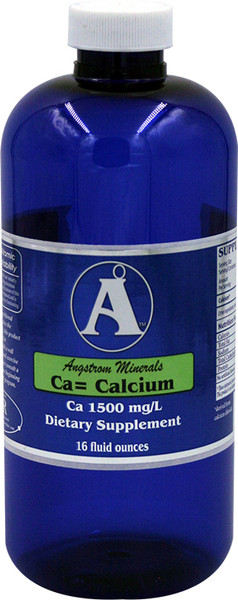Angstrom Minerals Calcium
1500 mg/L = 1500 ppm
Liquid Calcium Mineral
Ionic Calcium
Cell Ready Calcium
Water Soluble Calcium
What is calcium and what does it do?
Calcium is a mineral found in many foods. The body needs calcium to maintain strong bones and to carry out many important functions. Almost all calcium is stored in bones and teeth, where it supports their structure and hardness.
The body also needs calcium for muscles to move and for nerves to carry messages between the brain and every body part. In addition, calcium is used to help blood vessels move blood throughout the body and to help release hormones and enzymes that affect almost every function in the human body.
Can calcium be harmful?
Getting too much calcium can cause constipation. It might also interfere with the body’s ability to absorb iron and zinc, but this effect is not well established. In adults, too much calcium (from dietary supplements but not food and beverages) might increase the risk of kidney stones. Some studies show that people who consume high amounts of calcium might have increased risks of prostate cancer and heart disease, but more research is needed to understand these possible links.
Article Link:
https://ods.od.nih.gov/factsheets/Calcium-Consumer/
Calcium Deficiency
Inadequate intakes of dietary calcium from food and supplements produce no obvious symptoms in the short term. Circulating blood levels of calcium are tightly regulated. Hypocalcemia results primarily from medical problems or treatments, including renal failure, surgical removal of the stomach, and use of certain medications (such as diuretics).
Article Link:
https://ods.od.nih.gov/factsheets/Calcium-HealthProfessional/












